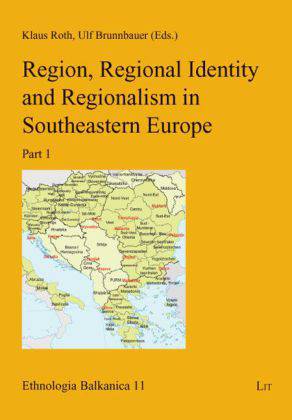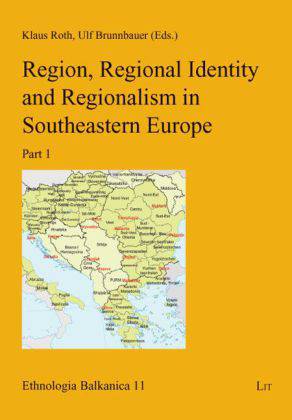
Bedankt voor het vertrouwen het afgelopen jaar! Om jou te bedanken bieden we GRATIS verzending (in België) aan op alles gedurende de hele maand januari.
- Afhalen na 1 uur in een winkel met voorraad
- In januari gratis thuislevering in België
- Ruim aanbod met 7 miljoen producten
Bedankt voor het vertrouwen het afgelopen jaar! Om jou te bedanken bieden we GRATIS verzending (in België) aan op alles gedurende de hele maand januari.
- Afhalen na 1 uur in een winkel met voorraad
- In januari gratis thuislevering in België
- Ruim aanbod met 7 miljoen producten
Zoeken
Region, Regional Identity and Regionalism in Southeastern Europe
Part 1
€ 29,45
+ 58 punten
Omschrijving
Southeastern Europe is often portrayed as an area plagued by endemic nationalisms, a view that seems to be confirmed by the break-up of Yugoslavia. However, a closer look shows that the nation is not the only territorial unit of identification. Regions play an important role as well, especially those that look back on traditions that differ from those of the national state. Thus, the end of socialism also brought forward regional movements which articulated opposition to the dominance of the centralized state. These developments are furthered by the integration into the European Union, whose policy of a "Europe of the Regions" demands strong regional centers for the administration of structural funds.
The contributions to this volume address the dynamics of regions, regionalism and regional identities in present Southeast Europe, but also look into the history of individual regions. They provide ample material for understanding the complex nature of territorial identification in this rapidly changing part of Europe.
The contributions to this volume address the dynamics of regions, regionalism and regional identities in present Southeast Europe, but also look into the history of individual regions. They provide ample material for understanding the complex nature of territorial identification in this rapidly changing part of Europe.
Specificaties
Betrokkenen
- Uitgeverij:
Inhoud
- Aantal bladzijden:
- 304
- Taal:
- Engels
- Reeks:
- Reeksnummer:
- nr. 11
Eigenschappen
- Productcode (EAN):
- 9783825813871
- Uitvoering:
- Paperback
- Afmetingen:
- 147 mm x 210 mm
- Gewicht:
- 425 g

Alleen bij Standaard Boekhandel
+ 58 punten op je klantenkaart van Standaard Boekhandel
Beoordelingen
We publiceren alleen reviews die voldoen aan de voorwaarden voor reviews. Bekijk onze voorwaarden voor reviews.








